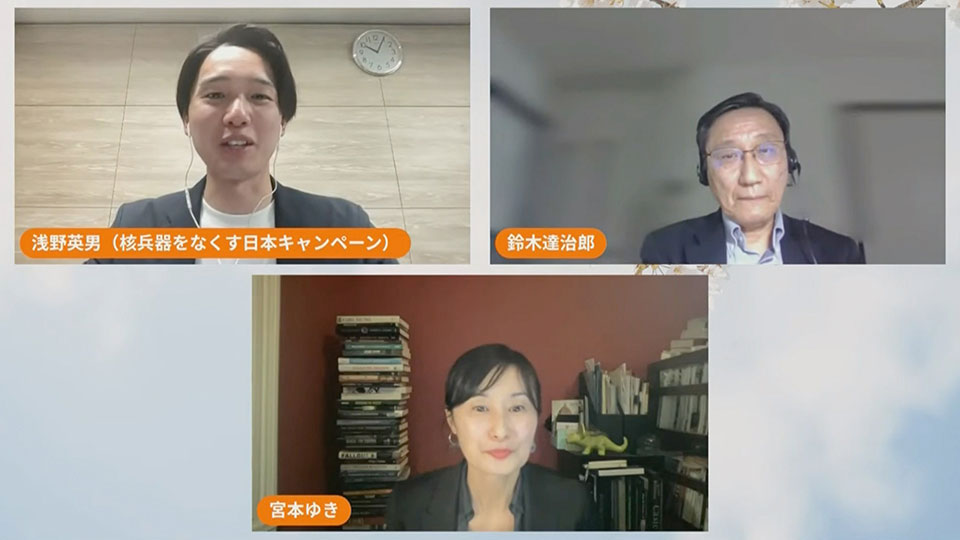"Oppenheimer" is set in the United States during World War Two. It depicts the physicist's deepening agony as he learns the catastrophic consequences of the bombing of Hiroshima and Nagasaki.
Director Christopher Nolan has said he hopes the film will help raise awareness of the dangers of nuclear weapons.

The film's distributor in Japan says its opening weekend had the biggest sales of any non-Japanese movie this year. It said about 230,000 people watched in the first three days. "Oppenheimer" has been popular among young people, especially those in their 20s.
A high school student in Hiroshima says he felt the need to revise his understanding of the nuclear bomb.

A woman in her 20s said she enjoyed the film in Tokyo, even though its theme was very heavy.
A 23-year-old man said it was a first time to see the atomic bomb's history from the US perspective, although he had studied the topic in schools in Japan.
A 28-year-old man says the film gave him a look at what was happening in the US at the time. He stressed that Japan should be the only country in the world that has suffered atomic bombings, and that there should be no use of the weapon again.
Another woman in Tokyo, 28, said she needed to watch the film, and was overwhelmed. She said she keenly felt the need to think more deeply about the theme. She also says it gave her a notice to think not only about the atomic bomb but also about the global situation, wars, and global peace.

Critics focus on lack of Hiroshima and Nagasaki portraits
The Japan NGO Network for Nuclear Weapons Abolition held an online symposium April 7. Views on the film were exchanged.
Some criticisms focused on the fact that the film did not include portrayals of the suffering in Hiroshima and Nagasaki.

Professor Miyamoto Yuki of DePaul University in the US, whose work centers on nuclear discourse, pointed out the importance of understanding what the bombs did. She said, "If Oppenheimer experienced emotional conflict, the nuclear damage that made him agonize must be shown in order for viewers to deepen their understanding. Also, support for nuclear weapons is strongly rooted in the US, so it is important to show that there were also American victims from testing atomic bombs."

Professor Suzuki Tatsujiro at Nagasaki University's Research Center for Nuclear Weapons Abolition said the whole film has an anti-nuclear message. He said that because it lacked scenes of suffering from the bombings, viewers were left to imagine what must have happened.
Asano Hideo, a member of the group that organized the symposium said, "I hope showing 'Oppenheimer' at cinemas will prompt viewers to think of it not just as the story of the past but also one that prompts action on a matter that still exists today."
Hibakusha: " What happened beneath the mushroom cloud is important."
Sakuma Kunihiko of Hiroshima Prefecture was 9 months old at the time of the bombing. He was exposed to radiation at his home about 3 kilometers from the atomic-bombed city. He does not remember the time clearly. Still, he suffered from kidney and liver diseases when he was in elementary school and was absent from school for a long time.
As an atomic bomb survivor, Sakuma has been working to call on people at home and abroad to abolish nuclear weapons.

Sakuma said, "Just because images of the bombed cities and hibakusha are absent from the film, I don't think it means the film makes little of the bombings." But "what happened beneath the mushroom cloud is important, and we need for everyone to think about how to use the tragic consequences of the bombings to build peace."
Sakuma said he hopes the film will inspire more people visiting Hiroshima and Nagasaki to learn and make judgments about nuclear weapons.

